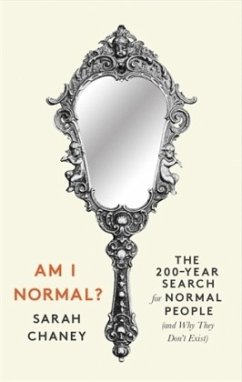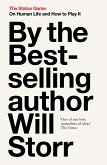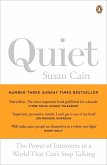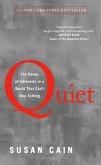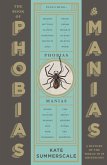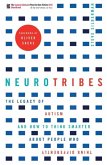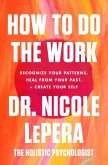§_A Blackwell's Book of the Year_
_A Waterstones Best Popular Science Book of 2022_
_A Telegraph Best Book for Summer 2022_
_As heard on BBC Radio 4 Woman's Hour_
'Excellent ... one of those rare pop-science books that make you look at the whole world differently' The Daily Telegraph _____
'Riveting' Mail on Sunday _____
'Captivating' Guardian, Book of the Day
'Compelling' Observer
Before the nineteenth century, the term normal was rarely ever associated with human behaviour. Normal was a term used in maths: people weren't normal - triangles were.
But from the 1830s, this branch of science really took off across Europe and North America, with a proliferation of IQ tests, sex studies, a census of hallucinations - even a UK beauty map (which concluded the women in Aberdeen were "the most repellent"). This book tells the surprising history how the very notion of the normal came about, how it shaped us all, often while entrenching oppressive values.
Sarah Chaney looks at why we're still asking the internet: Do I have a normal body? Is my sex life normal? Are my kids normal? And along the way, she challenges why we ever thought it might be a desirable thing to be.
_A Waterstones Best Popular Science Book of 2022_
_A Telegraph Best Book for Summer 2022_
_As heard on BBC Radio 4 Woman's Hour_
'Excellent ... one of those rare pop-science books that make you look at the whole world differently' The Daily Telegraph _____
'Riveting' Mail on Sunday _____
'Captivating' Guardian, Book of the Day
'Compelling' Observer
Before the nineteenth century, the term normal was rarely ever associated with human behaviour. Normal was a term used in maths: people weren't normal - triangles were.
But from the 1830s, this branch of science really took off across Europe and North America, with a proliferation of IQ tests, sex studies, a census of hallucinations - even a UK beauty map (which concluded the women in Aberdeen were "the most repellent"). This book tells the surprising history how the very notion of the normal came about, how it shaped us all, often while entrenching oppressive values.
Sarah Chaney looks at why we're still asking the internet: Do I have a normal body? Is my sex life normal? Are my kids normal? And along the way, she challenges why we ever thought it might be a desirable thing to be.

